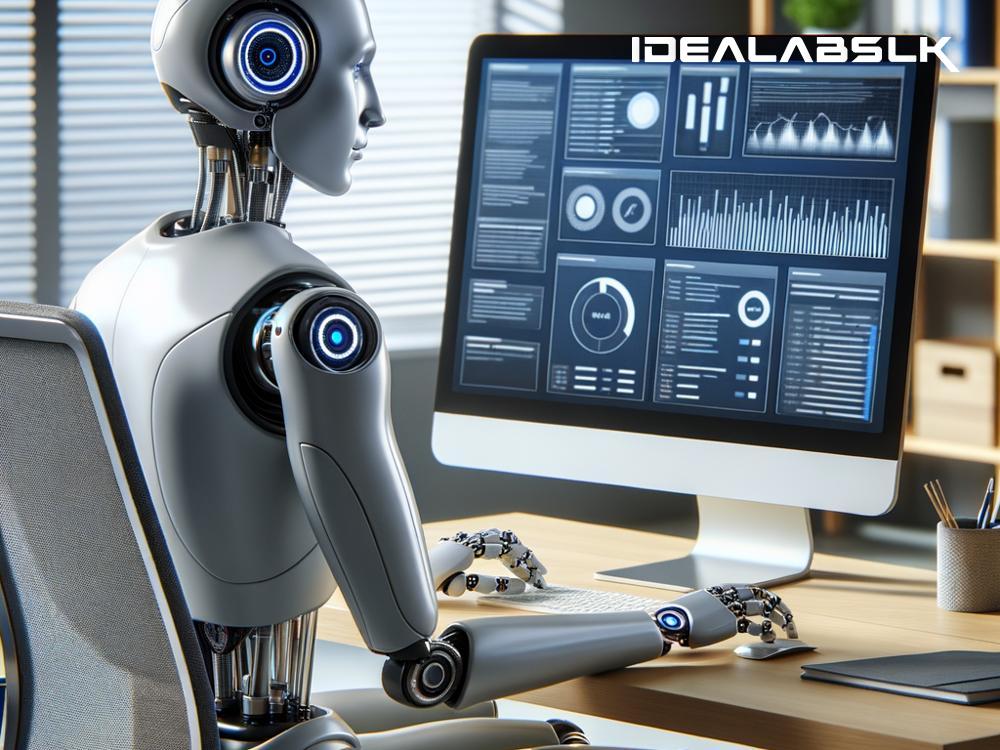Title: Simplifying HR Workloads with Robotic Process Automation (RPA)
In today’s fast-paced business world, staying ahead means leveraging technology to handle repetitive tasks, letting humans focus on more strategic aspects of work. This is where Robotic Process Automation (RPA) comes in, especially in the Human Resources (HR) department.
What is RPA?
Imagine having a robot colleague who's incredibly efficient at doing repetitive tasks 24/7 without taking breaks. That's what RPA technology does, but in the digital realm. RPA uses software robots or "bots" to automate routine processes that follow specific rules, such as entering data into databases, processing transactions, or reviewing and filing documents.
RPA in HR: A Game-Changer
HR is known for its heavy load of administrative work. From sorting through resumes, onboarding new employees, to managing payroll and employee offboarding, the list goes on. This is where RPA can be a game-changer, offering a helping hand to streamline these procedures.
Simplifying Recruitment
RPA can transform the recruitment process. It can sift through hundreds of resumes to find candidates who match specific job criteria, schedule interviews, and even send out job offer letters. This doesn't just save time; it also ensures consistency and fairness in the selection process.
Onboarding Made Easy
The onboarding process involves a lot of paperwork and setting up new employees in various systems. RPA bots can handle these tasks effortlessly, from creating email accounts to enrolling new hires in benefits plans. This allows the HR team to focus on making the new employee feel welcome rather than being bogged down with administrative tasks.
Managing Employee Data
HR departments manage a tremendous amount of data. RPA can maintain employee records, update them as necessary, and ensure they are accurate and compliant with laws and regulations. This minimizes the risk of data entry errors and the potential legal issues that could arise from them.
Streamlining Payroll Processes
Calculating payroll involves various factors such as hours worked, leaves, taxes, and benefits. RPA can automate these calculations, ensuring employees are paid accurately and on time. This not only enhances efficiency but also employee satisfaction.
Optimizing Employee Offboarding
When employees leave a company, RPA can manage the checklist of tasks that need to be completed, from revoking access to company systems to processing final paychecks. This ensures a smooth transition for both the employer and the employee.
The Benefits of Implementing RPA in HR
The adoption of RPA in HR can bring about several benefits, including:
- Increased Efficiency: Tasks that previously took hours can now be completed in minutes, freeing up the HR team to focus on activities that add value.
- Enhanced Accuracy: Bots reduce human errors, ensuring processes such as payroll are done right the first time.
- Improved Compliance: Keeping up with regulations can be challenging. RPA can automatically update records and systems in response to new laws, helping businesses stay compliant.
- Better Employee Experience: With RPA handling mundane tasks, HR professionals can dedicate more time to employee relations, training, and development, improving overall job satisfaction.
Getting Started with RPA in HR
Implementing RPA starts with identifying the processes that are rule-based, repetitive, and time-consuming. These are the tasks that RPA bots excel at. Then, businesses should think about seeking the help of RPA consultants or vendors who specialize in HR automation to design and implement these solutions.
The Future of RPA and HR
The role of RPA in HR is just beginning to unfold. As technology advances, we can expect these bots to handle more complex tasks, further transforming the HR landscape. Moreover, integrating RPA with other technologies like artificial intelligence (AI) and machine learning could open new avenues for predictive analytics in HR, helping in strategic decision-making.
Conclusion
RPA presents a world of opportunities for HR professionals, enabling them to shift from administrative work to more strategic roles. By automating routine tasks, RPA not only increases efficiency and accuracy but also allows HR to contribute more significantly to business growth. Embracing RPA in HR is not just about keeping up with technology; it's about transforming the HR function into a strategic powerhouse.

